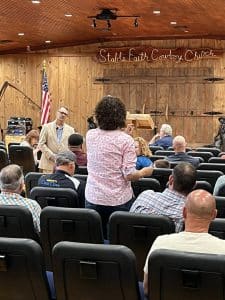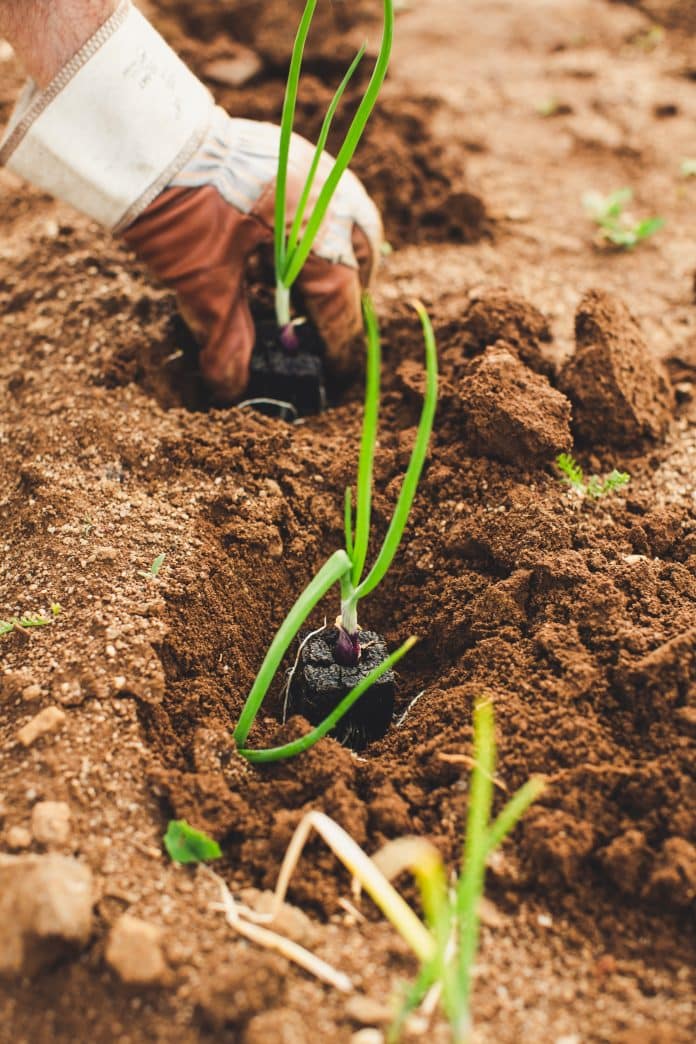Federal support for the local agricultural industry and the preservation of open spaces were on the minds of the farmers and ranchers who met with U.S. Rep. Gus Bilirakis (R-12) at Stable Faith Cowboy Church in Brooksville. Brooksville Mayor Blake Bell and Hernando County Commissioner John Allocco also took part in the June 2 Town Hall-style meeting.
Atop the agenda was a discussion of the major legislation contained in the federal Farm Bill, including assistance for farmers during and after natural disasters and ways to minimize federal bureaucracy for those who seek agricultural grants. Every five years, Congress passes the so-called Farm Bill, a legislative package that addresses agriculture, crop assistance, nutrition, and commodity support. Currently, the Agriculture Improvement Act of 2018 (2018 Farm Act) will remain in force until 2023. Congress members will renegotiate and pass a renewed version of the legislation this year.
According to Bilirakis, many of the U.S. Department of Agriculture (USDA) programs are currently designed based on standards of loss in the Midwest and West – not Florida. “As a result, many of Florida’s farmers are shut out (of disaster-relief programs),” he said.
Cattle rancher Larry Rooks, owner and operator of Diamond Horseshoe and past president of the Florida Cattlemen’s Association, was specific.
“Drought has been an issue, and the Florida Farm Service Agency (FSA) needs more revenue to boost staff in order to respond to disaster situations such as last season’s hurricanes and others,” Rooks said. “FSA staff is just stretched thin.”
The rise in local development was also on the collective minds of local ranchers and farmers, Rooks said. “Conflict comes when development (threatens) open farmlands, and it’s not just the food supply,” he said. “The public probably does not realize that we need open spaces to recharge the water so that everyone has clean water to drink and to use.”
Balancing growth while maintaining open spaces is key, Bell said. “It is important because the agricultural industry and farmers have been the backbone of the area,” he stated.
Finally, Allocco said that lawmakers must also consider broader issues when formulating agriculturally-focused legislation.
“The government, first and foremost, must not be an impediment to the farming community,” he said. “It must minimize the ability of foreign interests to acquire agricultural lands and encourage our farmers to maximize productivity to reduce dependency on foreign food sources.”
Last month, the Agriculture Appropriations Subcommittee of the U.S. House of Representatives passed an agriculture appropriations bill that passed out of that subcommittee along party lines. The House Appropriations Committee was slated to mark up the bill at the end of May; however, that process was delayed by the recent debt ceiling negotiations.


